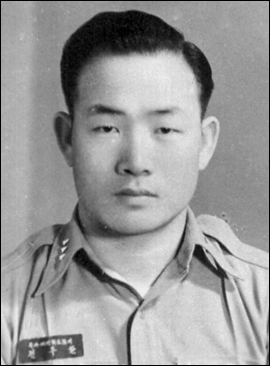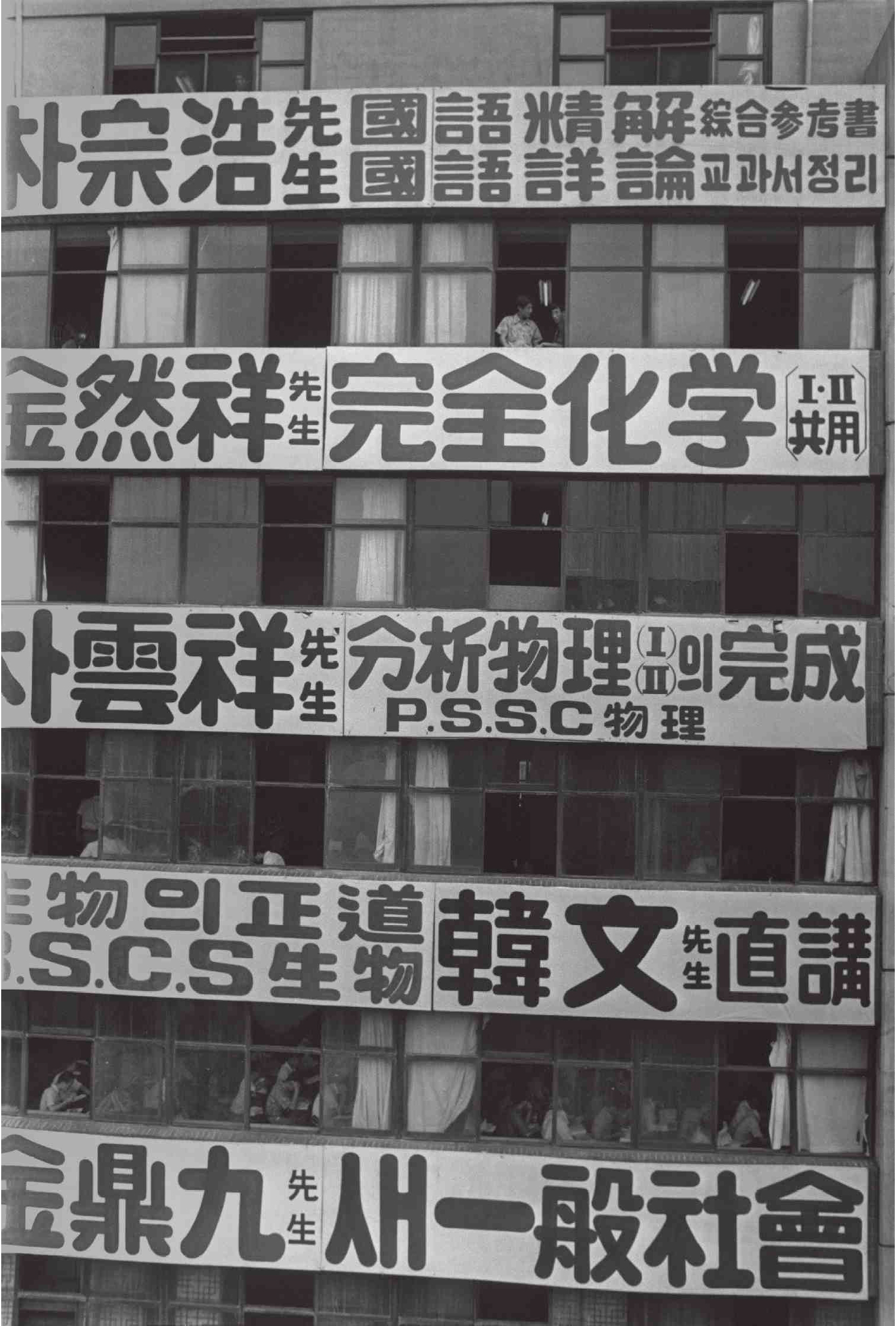|
Yeonhui-dong, Seoul
Yeonhui-dong () is a ''dong (neighbourhood), dong'' (neighbourhood) at the center of Seodaemun District, Seoul, South Korea. It is an area in Seoul near Yonsei University, Yonsei university, and actually the name Yonsei comes from the combination of Yeonhui (the former Yonhee College) and Severance (the former Severance Union Medical College, Yonsei Severance Hospital, Severance Hospital). A strategic position during the Korean War (Hill 104), the area is bordered by Hongjecheon to the West (a stream overlooked by an important expressway), Ansan (Seoul), Ansan to the East (the mountain where Yonsei University is located), and Yeonnam-dong (Mapo District) to the South. Seodaemun District office is situated at the top of this triangle, along with the Seodaemun Health Center () and the Seodaemun Youth Center (), with its public swimming pool. Names During the Joseon period, the neighborhood had different names (Jeongja-dong, Yeom-dong, Gung-dong, Eumwol-ri). Under the Japanese occup ... [...More Info...] [...Related Items...] OR: [Wikipedia] [Google] [Baidu] |
Hangul
The Korean alphabet is the modern writing system for the Korean language. In North Korea, the alphabet is known as (), and in South Korea, it is known as (). The letters for the five basic consonants reflect the shape of the speech organs used to pronounce them. They are systematically modified to indicate Phonetics, phonetic features. The vowel letters are systematically modified for related sounds, making Hangul a featural writing system. It has been described as a syllabic alphabet as it combines the features of Alphabet, alphabetic and Syllabary, syllabic writing systems. Hangul was created in 1443 by Sejong the Great, the fourth king of the Joseon dynasty. The alphabet was made as an attempt to increase literacy by serving as a complement to Hanja, which were Chinese characters used to write Literary Chinese in Korea by the 2nd century BCE, and had been adapted to write Korean by the 6th century CE. Modern Hangul orthography uses 24 basic letters: 14 consona ... [...More Info...] [...Related Items...] OR: [Wikipedia] [Google] [Baidu] |
Mapo District
Mapo District () is one of the 25 districts of Seoul, South Korea. Mapo has a population of 381,330 (2015) and has a geographic area of 23.87 km2 (9.22 sq mi), and is divided into 24 '' dong'' (administrative neighborhoods). Mapo is located in western Seoul on the northern bank of the Han River, bordering the Gyeonggi Province city of Goyang to the northwest, and the Seoul city districts of Gangseo to the west, Yeongdeungpo to the south, Yongsan to the southeast, Jung to the east, and Seodaemun and Eunpyeong to the north. Mapo is home to several universities and government buildings, and is well known for the Hongdae club district around Hongik University. Mapo is connected to the Seoul Metropolitan Subway's Line 2, Line 5, and Line 6, as well as the Airport Railroad, and the Korail Gyeongui-Jungang Line, which all pass through this district. The Seoul World Cup Stadium, a famous landmark in Seoul, is located in Sangam in northwest Mapo. Etymology The name "Ma ... [...More Info...] [...Related Items...] OR: [Wikipedia] [Google] [Baidu] |
Kim Young-ha
Young-ha Kim (c. November 11, 1968) is a modern South Korean writer. Life Kim was born in Hwacheon on November 11, 1968. He moved from place to place as a child, since his father was in the military. As a child, he suffered from gas poisoning from coal gas and lost memory before ten. He was educated at Yonsei University in Seoul, earning undergraduate as well as graduate degrees in Business Administration from Yonsei University, but he didn't show much interest in it. Instead he focused on writing stories. Kim, after graduating from Yonsei University in 1993, began his military service as an assistant detective at the military police 51st Infantry Division near Suwon. His career as a professional writer started in 1995 right after discharge when his short-story ''A Meditation On Mirror'' (Geoure daehan myeongsang) appeared in Review, and the following year, won the 1st New Writer's Award given by Munhak Dongne with the novel, ''I Have a Right to Destroy Myself'' (Naneun nareul ... [...More Info...] [...Related Items...] OR: [Wikipedia] [Google] [Baidu] |
Seo Taiji
Jeong Hyeon-cheol (; born February 21, 1972), better known as Seo Taiji or Seo Tae-ji (), is a South Korean singer, musician, songwriter and record producer. After dropping out of high school to pursue a music career, he rose to become one of the most prominent and influential cultural icons in South Korea, with many referring to him as "the President of Culture". Following a brief stint in the heavy metal band Sinawe, Taiji formed Seo Taiji and Boys in 1991 with whom he found immediate success. Their style of music, dance, fashion, and self-presentation resonated with the young generation—termed the sinsedae, "new generation." They incorporated elements of popular musical genres from the West and contributed considerably larger to Korean pop culture and Korean pop's development in the 1990s. His songs addressed social and political concerns of the youth including the stressful and stifling system of education in Korea, and the rage of youth in the face of poor social and e ... [...More Info...] [...Related Items...] OR: [Wikipedia] [Google] [Baidu] |
Matthew Douma
Ennik Somi Douma (born March 9, 2001), known professionally by her Korean name Jeon Somi (), is a South Korean and Canadian singer signed under The Black Label. Born in Canada to a South Korean mother and a Dutch-Canadian father, she moved to South Korea as an infant. She quickly achieved domestic fame as the first-place winner of the survival reality show ''Produce 101'' and a member of the show's eleven-piece project girl group I.O.I. Following the conclusion of I.O.I's group activities, Jeon signed with YG Entertainment's subsidiary, The Black Label. She made her debut as a solo artist on June 13, 2019, with the single "Birthday". In 2021, she released her first studio album ''XOXO'', which included the top-ten single " Dumb Dumb". She achieved her first top-five single in South Korea with "Fast Forward" in 2023. Early life Ennik Somi Douma was born on March 9, 2001, in Windsor, Ontario, to a South Korean mother Jeon Sun-hee and a Canadian father of German and Dutch desce ... [...More Info...] [...Related Items...] OR: [Wikipedia] [Google] [Baidu] |
Roh Tae-woo
Roh Tae-woo (, ; 4 December 1932 – 26 October 2021) was a South Korean army general and politician who served as the sixth president of South Korea from 1988 to 1993. In 1987, he became the first president to be directly elected under the current democratic Constitution of South Korea, constitution, which was promulgated after a lengthy period of indirect elections under military governments following the advent of the Yushin Constitution in 1972 South Korean presidential election, 1972. Born in Daegu, Roh attended the Korea Military Academy alongside his close friend Chun Doo-hwan. Rising steadily through the ranks, he saw action in the Vietnam War, and by 1979 he was a major general and commanded the 9th Infantry Division (South Korea), White Horse Division. In that capacity, Roh played a key role in the Coup d'état of December Twelfth, December 1979 military coup that brought Chun to power, and supported Chun's violent crackdown of the Gwangju Uprising in 1980. Retiring fr ... [...More Info...] [...Related Items...] OR: [Wikipedia] [Google] [Baidu] |
Chun Doo-hwan
Chun Doo-hwan (; 18 January 1931 – 23 November 2021) was a South Korean politician, army general and military dictator who served as the fifth president of South Korea from 1980 to 1988. Prior to his accession to the presidency, he was the country's ''de facto'' leader from 1979 to 1980. Chun usurped power after the 1979 Assassination of Park Chung Hee, assassination of president Park Chung Hee, who was himself a military dictator who had ruled since 1961. Chun orchestrated the Coup d'état of December Twelfth, 12 December 1979 military coup, then cemented his military in the Coup d'état of May Seventeenth, 17 May 1980 military coup in which he declared martial law and later set up a Samchung re-education camp, concentration camp for "purificatory education". He established the Fifth Republic of Korea on 3 March 1981. He governed under a constitution somewhat less authoritarianism, authoritarian than Park's Fourth Republic of Korea, Fourth Republic, but still held very broad e ... [...More Info...] [...Related Items...] OR: [Wikipedia] [Google] [Baidu] |
Sinchon-dong, Seoul
Sinchon-dong () is a neighbourhood and a judicial (as opposed to Administrative divisions of South Korea#Dong (Neighborhood), administrative) ''dong'' () in Seodaemun District, Seoul, South Korea. Sinchon's main attraction is its nightlife, with numerous bars of both western style and traditional Korean hofs, restaurants, and other activities aimed at the area's student population. Transport Sinchon Station is located on Seoul Subway Line 2 between Ewha Womans University Station and Hongik University Station. Sinchon Station is also the name of a station on the Gyeongui Line which connects Seoul and Dorasan Station, Dorasan. Sinchon is the line's second station, located between Seoul Station and Gajwa Station. The main bus station/terminal is located near the police station about 100m south (towards Yeouido) from Sinchon Rotary. Bus number 110A goes to Itaewon and can be caught near Hyundai dept. store. The first transit mall in Seoul and only second in the nation following ... [...More Info...] [...Related Items...] OR: [Wikipedia] [Google] [Baidu] |
Hagwon
(; ) is a Korean term for a for-profit private educational institution. They are commonly likened to cram schools. Some consider ''hagwons'' as private language centers or academies operated like businesses apart from the South Korean public school system. , 78.3% of grade school students in South Korea attend at least one and spend an average of 7.2 hours weekly in them. Most children begin attending them by age five, with some even beginning by age two. The schools tend to focus on individual topics, including the English language, mathematics, and the college entrance exam, the College Scholastic Ability Test. also exist for adults. ''Hagwons'' have been a topic of controversy and criticism both internationally and in South Korea. They are seen as symptomatic of the significant competitiveness in South Korean society, and contribute to significant expense and stress for the majority of families who participate in them. Real estate prices are affected by proximity to elite ... [...More Info...] [...Related Items...] OR: [Wikipedia] [Google] [Baidu] |
Seoul Foreign School
Seoul Foreign School is a Pre-K/Reception to Grade 12 international school located in Seoul, South Korea. The school was founded in 1912 by Christian missionaries to Korea and emphasizes Christian values. The Elementary, Middle and High Schools offer an international curriculum within the International Baccalaureate framework of PYP, MYP and DP. The High School offers the IB Diploma Programme. The British School offers the English National Curriculum - Key Stages 1–3. Seoul Foreign School has been located in Yeonhui-dong, Seodaemun-gu, since 1959. Seoul Foreign School is accredited by the Western Association of Schools and Colleges (WASC) and the (CIS) History Seoul Foreign School was founded in 1912, by Christian missionaries to Korea (Ethel Van Wagoner Underwood), with one class of 18 students. The school started in 1912 with 7 teachers and currently has over 1,500 students from more than 50 countries, offering education from PK to high school. It is differentiated fro ... [...More Info...] [...Related Items...] OR: [Wikipedia] [Google] [Baidu] |





